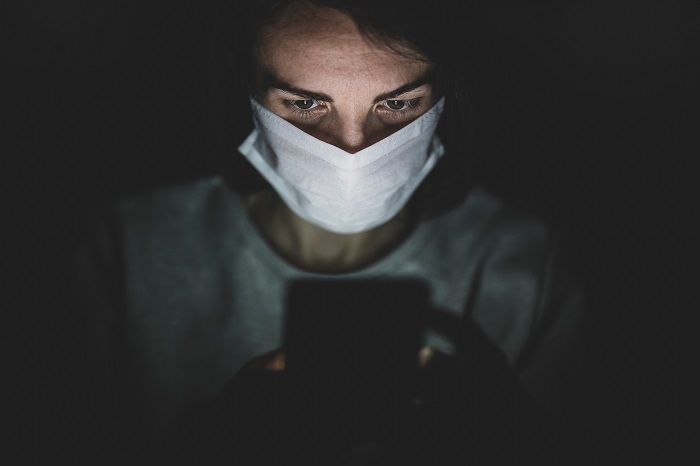Italy’s pharmaceuticals agency, AIFA, warned about using an unlicensed antiviral medication as a COVID-19 treatment, calling it a health hazard. The Ministry of Health notified authorities of many requests to acquire Parvulan. This antiviral medicine is used to treat Herpes Zoster and is not approved in Italy but is licensed in Brazil.
AIFA reports that consumer queries in Italy reveal Parvulan is being offered off-label as a COVID-19 treatment instead of authorized immunizations. The FDA states that using Parvulan to prevent Sars-COV-2 has not been validated under safety and effectiveness criteria. Its medical council has not approved its use in a medical trial.
The prospective usage product as an alternative for licensed vaccinations thus poses a risk to human health, AIFA stated. According to the agency, the risk would arise from the insecurity in its usage and sufferers’ false sense of safety, given the absence of established performance. The first incidence of Herpes Simplex Virus in a COVID sufferer has been discovered in India:
What is this disease, and how deadly is it?
Herpes simplex virus remains dormant in nerve fibres for life, according to Cedars Sinai Hospital’s website. The COVID-19 pandemic has complicated patient treatment strategies with the emergence of numerous infections.
A recent social media plea requested public assistance to cover treatment costs for a COVID-19 patient with herpes simplex virus and other conditions. The Sunshine Hospital in Gachibowli, Secunderabad, is currently treating a patient who has Pyrexia of unknown origin, Kikuchi disease, meningitis, Leptospira, herpes simplex virus, malignancy, and acute pneumonia due to COVID-19.
News18 reported the first case of highly lethal herpes simplex virus infection at a hospital near Delhi, in Ghaziabad. As per News18, Doctor B.P. Tyagi from Ghaziabad found India’s 1st occurrence of herpes simplex occurrence in a patient’s nose. Dr Tyagi described the virus as “extremely hazardous,” adding that if untreated, the virus could kill more people than Covid-19.
Read more: The Influence Of COVID-19 On Herpes Dating Platforms
Herpes Simplex Viruses
The herpes simplex virus causes this irritating and often painful chronic illness. Herpes sores (lesions) usually last between a week and ten days.
The tongue, lips, gums, and upper inside of the mouth are the usually infected regions. The sores begin as fluid-filled blisters that eventually explode (break – up) within a day or two. The lesions will exude virus-infected fluid.
HSV-2 illnesses are most often linked to genital herpes.
Do you have an HSV infection?
Symptoms of the flu. Lymph nodes that are swollen and Headache. Sores on the lips, around the lips, and across the mouth are all possible. Some folks don’t show any signs or symptoms at all. Test for herpes zoster
Why are herpes making headlines amid the COVID pandemic?
According to a study in the Business Standard, many COVID patients in recovery are facing various skin complications due to weakened immunity. These complications range from reactivated herpes infections to hair loss.
Is it possible to contract coronavirus through sex?
Any regular interaction (within 6 feet or 2 meters) with an infected person can contaminate you with the virus, causing coronavirus sickness 2019.
Respiratory bits are discharged when a virus spits, coughs, sneezes, or talks. Touching or other sex acts that come into contact with someone’s spit can expose you to the virus.
COVID-19 carriers may potentially transmit respiratory particles onto their skin and personal effects. By contacting these areas and then contacting their mouth, nose, or eyes, a sexual encounter could cause the disease.
Furthermore, the COVID-19 disease can be transferred by coming into contact with excrement. The
Although there is no proof that the COVID-19 virus is transferred through sperm or vaginal secretions, the virus has been found in the sperm of infected people.
Vaccination works
Authorities advise resuming daily activities after vaccination, but with caution. You are fully vaccinated 14 days after two doses of an mRNA COVID-19 vaccine or a single dose of the COVID-19 vaccine. If unvaccinated, avoid close contact with people. This includes not having sex with someone who is not your roommate.
If you or your partner feel unwell or suspect COVID-19, wait until both feel better before kissing or having sex. Abstain from sex if either you or your partner is at increased risk of severe COVID-19 due to a chronic medical condition.
Masturbation is the best sort of sexual action during the COVID-19 epidemic. If you haven’t received a COVID-19 vaccination before and after masturbating, clean your hands and any sex toys you use.
To preserve your anonymity, you might also explore communicating with your spouse via text, photographs, or videos, preferably on a secure network.
There are many other opportunities to establish or maintain intimacy with a companion at a range without sex. Just get on online dates, pick your favourite music, send messages, and dress up for one another. Go inventive.
If you are not vaccinated and having sex with anyone outside of your home,



